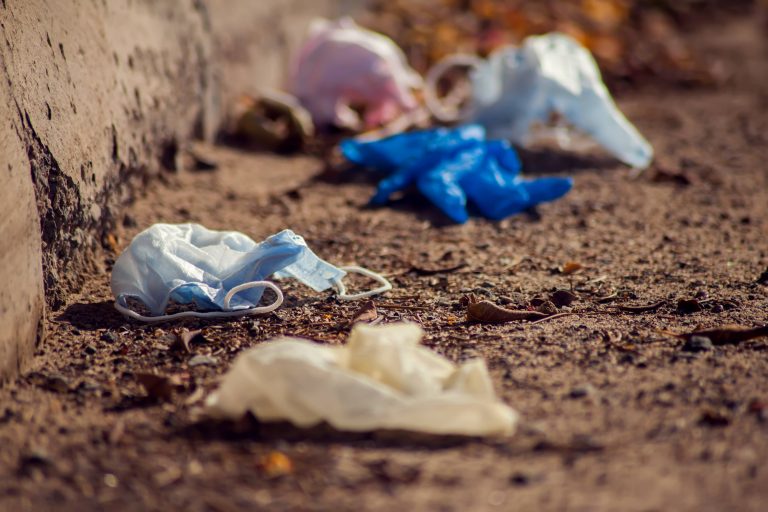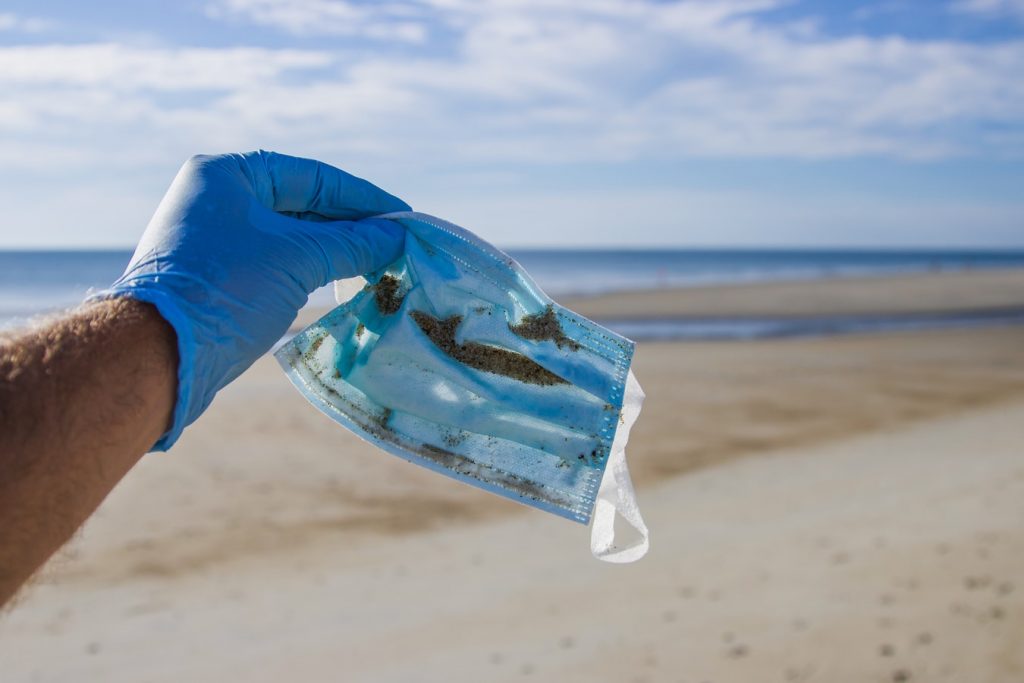The COVID-19 pandemic spurred the wearing of masks, observing health protocols, and avoiding crowds for everyone’s safety. However, the plastic waste problem also rose. Does Mother Nature have to pay for all our efforts in self-preservation?

The new coronavirus, COVID-19, has unleashed panic and fear among people worldwide as deaths continue to rise and practically brought the world to a standstill.
2020 is a grim year for humanity as the global pandemic claimed millions of lives, taunting the health care system, and stalled the economies worldwide. COVID-19 has set off a “new normal” way of life where health authorities mandate the wearing of face masks, observing social distancing, and regular washing of the hands for everyone’s safety. People are advised to avoid crowds and stay home as much as possible.
As of January 2021, there are more than 102 million cases and more than two million deaths worldwide.
The new health protocols created a demand for face masks, face shields, and other protective equipment or tools to ward off the virus. Because restaurants were closed or disallowed dining in, people either cooked more at home or resorted to taking to-go food or takeout orders. These also triggered the demand for more food plastic packaging. Imagine the plastic and other wastes generated from all these.
The COVID-19 Plastic Problem
According to Science Magazine, single-use face mask production reached 116 million pieces per day in China in February, increasing the demand twelvefold. The World Health Organization (WHO) also recommended a 40% increase in disposable PPE production. It is also projected that 129 billion face masks and 65 billion gloves worth of waste per month will be produced because of the pandemic. In the United States, it is predicted that an entire year’s volume of medical waste will be reached within just two months if estimated similarly to China’s influx of plastic waste.
Meanwhile, the production of plastic packaging also shot up. Because of the lockdowns, people are forced to stay at home and order take-out meals and home-delivered groceries. Singapore alone produced an additional 1400 tons of plastic in just a matter of 8 weeks. Overall, the pandemic caused a massive increase in the global plastic packaging market, from the US $ 909.2 billion in 2019 to a forecast US $1012.6 billion in 2021.
As the lockdowns eventually eased, people are now allowed to socialize to some degree. However, the significant change brought by social distancing exacerbated the littering problem. Open spaces such as parks and beaches became the new “restaurants,” but without staff cleaning up after the guests. Consequently, this again caused an increase in littered plastic cups, bottles, and, additionally, discarded single-use face masks. Oceans Asia reported an alarming rise in face masks among shores and suburbs, which pose a garbage problem and a health problem as well.
Taking Responsibility
With the dramatic increase in the plastic garbage volume in less than a year, one wonders whether the target is to make 2030 the year when the ocean plastic crisis ends. The target year would have imagined the renaissance of nature and wildlife. However, as the pandemic continues, tagging along with the global waste problem, environment advocates may find it hard to achieve a plastics-free world in 2030. Understandably, many would put their survival first before being mindful of the environment.
However, we also have to adopt a more long-term mindset, especially in the new normal. We are all certainly wishing for this pandemic to end, but we will have to face the consequences of irresponsible waste disposal too. After all, the death of our wildlife and ecosystem will also mean an end to human survival.
Even the simple act of not littering and properly disposing of waste can go a long way. As social creatures, modeling behaviors can influence the actions of others. According to Professor Wesley Schultz, people are more prone to litter in places that are already dirty. Thus, cleaning the parks and playgrounds of our mess can do wonders.
Choosing Products Responsibly
To contribute less to the mask-littering problem, opt for a reusable version; use cloth instead of disposable masks. Aside from being washable and reusable, many manufacturers with sustainable practices are also producing them to meet the demand.
Bringing your containers when buying food can also help lower the use of single-use plastics. Besides, it is also an added safety that you sterilize them yourself.
Change Yourself, Change the World
As Mahatma Gandhi said, “You must be the change you want to see in the world.” Just like we cannot end the virus without following health protocols, we cannot live in a healthy and abundant environment if we do not help address the waste management issues in the world.

